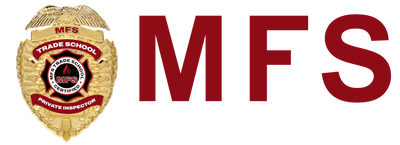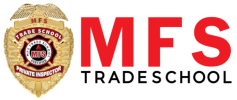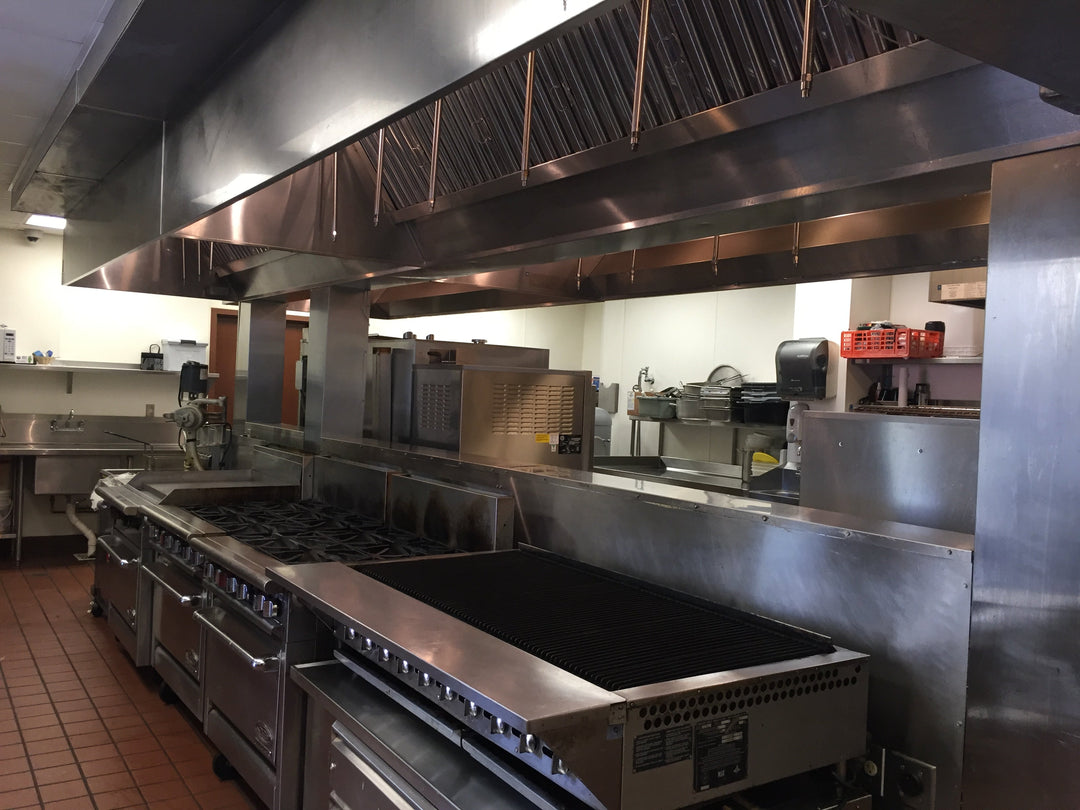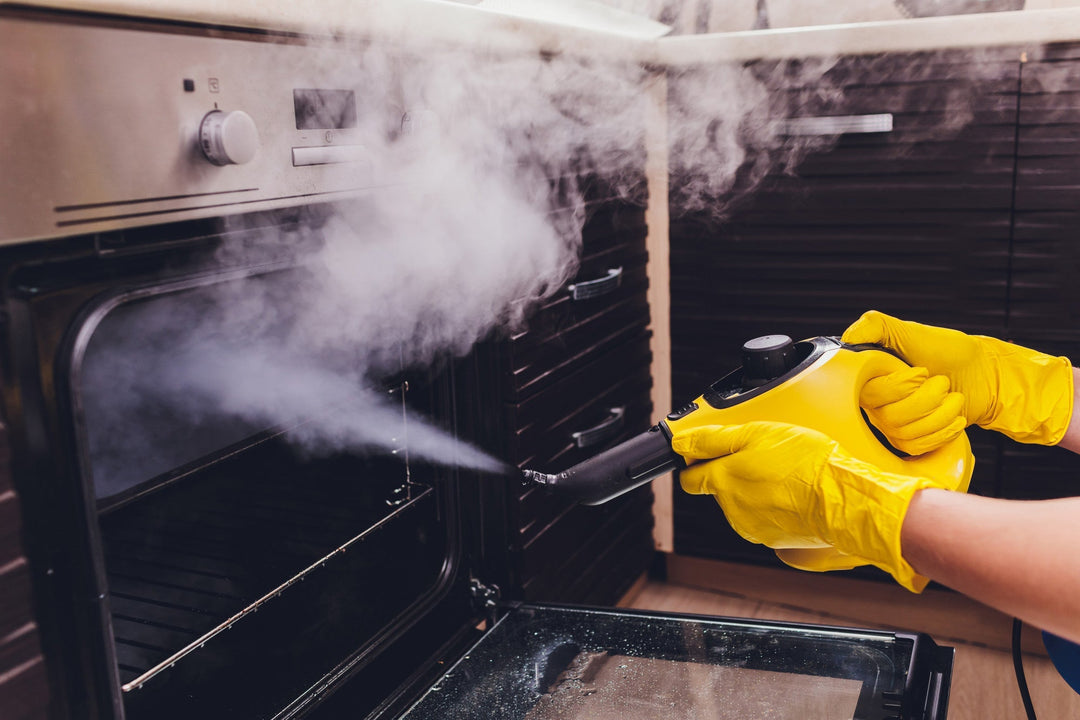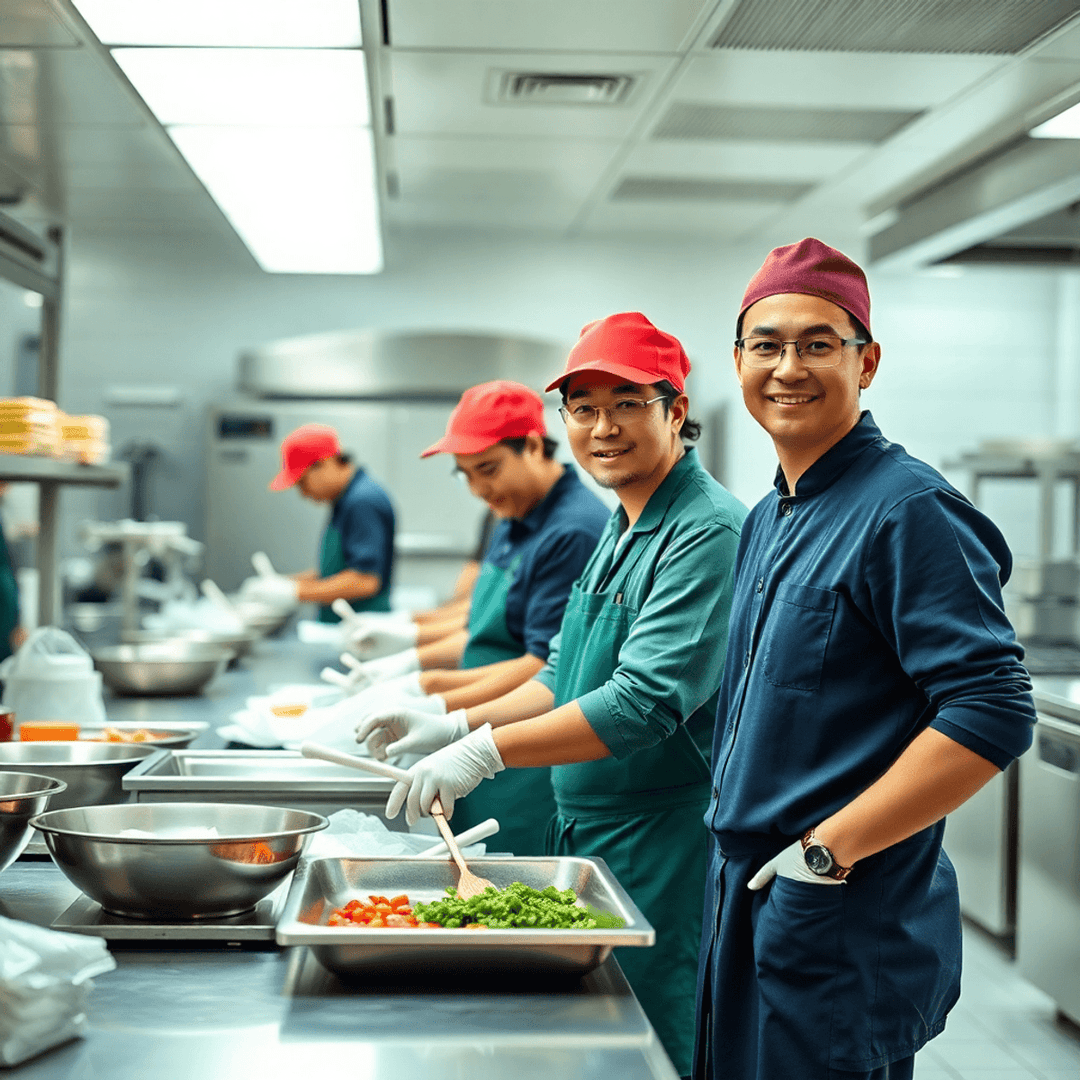Importance of Clean Restaurant Kitchen Hoods
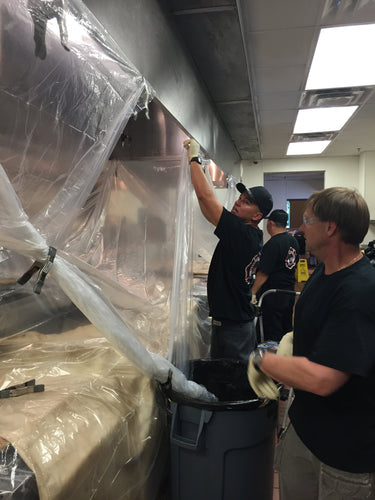
Why Clean Restaurant Kitchen Hoods Matter
Maintaining a clean and well-functioning kitchen hood is a critical aspect of running a successful restaurant. This essential piece of equipment plays a vital role in ensuring the safety, hygiene, and overall efficiency of a commercial kitchen.
A kitchen hood, also known as an exhaust hood, is designed to capture and remove smoke, grease, and other airborne contaminants generated during the cooking process. Without proper maintenance and regular cleaning, these substances can accumulate within the hood and ductwork, leading to a host of problems that can negatively impact your restaurant's operations and reputation.
In this article, we'll explore the importance of clean kitchen hoods for restaurants, discussing the risks associated with neglecting hood maintenance, the benefits of professional cleaning services, and best practices for establishing an effective cleaning schedule.

The Importance of Clean Kitchen Hoods for Restaurants
A clean kitchen hood is essential for maintaining a safe, hygienic, and efficient restaurant kitchen. Regular hood cleaning helps prevent grease buildup, reducing the risk of fire hazards and ensuring compliance with health and safety regulations. Kitchen exhaust hood cleaning is crucial for maintaining optimal airflow, improving kitchen air quality, and preventing odors from spreading throughout the restaurant, highlighting the benefits of proper kitchen ventilation.
Fire Prevention and Safety
One of the primary reasons for keeping kitchen hoods clean is to prevent fires. Grease particles generated during cooking can accumulate in the hood, filters, and ductwork. Over time, this buildup becomes a highly flammable substance that can easily ignite, causing a rapidly spreading fire. By regularly cleaning these components, restaurant owners can significantly reduce the risk of devastating kitchen fires and consider hands-on training for kitchen exhaust hood cleaning to ensure proper techniques are applied. Additionally, using kitchen exhaust fan products by HVACQuick can further enhance safety and efficiency.
Maintaining Health and Hygiene Standards
A clean kitchen hood also plays a crucial role in maintaining health and hygiene standards within the restaurant. Grease and debris buildup can harbor bacteria and other harmful microorganisms, which can contaminate food and pose health risks to both staff and customers. Regular cleaning helps prevent the growth of these microorganisms, ensuring a safer and more hygienic kitchen environment.
Improving Kitchen Efficiency and Air Quality
Clean kitchen hoods are essential for maintaining optimal airflow and ventilation within the kitchen, which can be achieved with commercial kitchen ventilation systems by CaptiveAire. When hoods and ductwork become clogged with grease and debris, it can impede the efficient removal of smoke, heat, and odors from the cooking area. This can lead to an uncomfortable working environment for kitchen staff, as well as poor air quality that can affect the dining experience for customers. By keeping hoods clean, restaurants can ensure better ventilation, improved kitchen efficiency, and a more pleasant atmosphere for everyone.
The Risks of Neglecting Kitchen Hood Maintenance
Neglecting kitchen hood maintenance poses significant risks that can compromise the safety and efficiency of a restaurant. Grease buildup is a critical concern, as it can lead to severe fire hazards. As cooking continues, grease particles settle into the hood, ductwork, and exhaust fans. This buildup transforms into a combustible substance that can ignite swiftly, resulting in a fire that threatens the safety of staff and customers. Routine cleaning and maintenance of these components are crucial to controlling grease buildup and preventing potential fire disasters.
Obstructed or dirty exhaust hoods can also hinder airflow, resulting in reduced kitchen efficiency and increased energy expenses. Understanding the types of kitchen range hoods can help in selecting the right system for your needs. When the exhaust system becomes blocked, it struggles to expel heat, smoke, and odors efficiently. This not only impacts the safety and comfort of kitchen staff but also puts additional strain on the equipment, leading to accelerated wear and tear. Consequently, this can result in the need for expensive repairs or replacements. Keeping hoods and ductwork clean ensures unobstructed airflow, allowing the exhaust system to operate effectively.
Failure to maintain clean kitchen hoods can lead to violations of health codes, fines, or even temporary restaurant closures. For additional details, visit our FAQs about kitchen exhaust hood cleaning.
Engaging Professional Kitchen Hood Cleaning Services
Engaging professional kitchen hood cleaning services provides significant advantages that go beyond basic maintenance. This comprehensive cleaning approach covers not just the visible parts, but also the often-overlooked filters, fans, and ductwork, ensuring the entire system operates safely and efficiently. For those unable to attend in-person training, an online kitchen exhaust hood cleaning course is a great alternative.
Expert technicians bring a trained eye to the inspection process, spotting potential issues such as worn-out components or airflow obstructions early. Addressing these problems promptly helps prevent more severe complications, extending the lifespan of kitchen equipment and minimizing the risk of disruptive and costly repairs. This proactive maintenance approach supports the smooth and continuous operation of restaurant kitchens.
Adherence to local health and safety regulations is crucial for restaurant success. Professional hood cleaning services ensure that all procedures meet regulatory standards, protecting the business from fines and enhancing its reputation for high hygiene standards. Furthermore, for those eager to expand their knowledge, training and certification programs offer valuable insights into best practices for maintaining a clean and compliant kitchen environment.

Establishing a Kitchen Hood Cleaning Schedule
Developing a strategic cleaning schedule for kitchen hoods involves assessing several critical factors. The nature of cooking activities, the quantity of food prepared, and adherence to local health standards are vital considerations in determining the appropriate cleaning intervals. For example, kitchens with high cooking volumes, such as those in 24-hour diners or busy fast-food chains, often accumulate more grease and residue, necessitating cleaning on a monthly or quarterly basis to maintain safety and efficiency.
Conversely, establishments with lower cooking volumes, like quaint cafes or seasonal operations, may find that less frequent cleaning meets their needs. For these kitchens, scheduling cleanings every six months or annually might be sufficient, provided they closely monitor any accumulation of grease and particles. This approach ensures that even with longer intervals, the kitchen exhaust system remains compliant with safety standards and fully operational.
To determine the most suitable cleaning schedule for your restaurant, consulting with a professional hood cleaning service is advisable, as well as exploring practical solutions for improving kitchen ventilation. Business owners can also benefit from hands-on exhaust cleaning coaching for business owners to gain advanced skills and insights.
Conclusion
Maintaining clean and well-functioning kitchen hoods is a vital aspect of running a successful restaurant, ensuring the safety, hygiene, and efficiency of your commercial kitchen. By understanding the importance of regular hood cleaning, the risks associated with neglect, and the benefits of professional services, you can establish an effective maintenance schedule that keeps your kitchen running smoothly. For those aiming to enter this industry, an online course for starting a restaurant cleaning business is a valuable resource.
